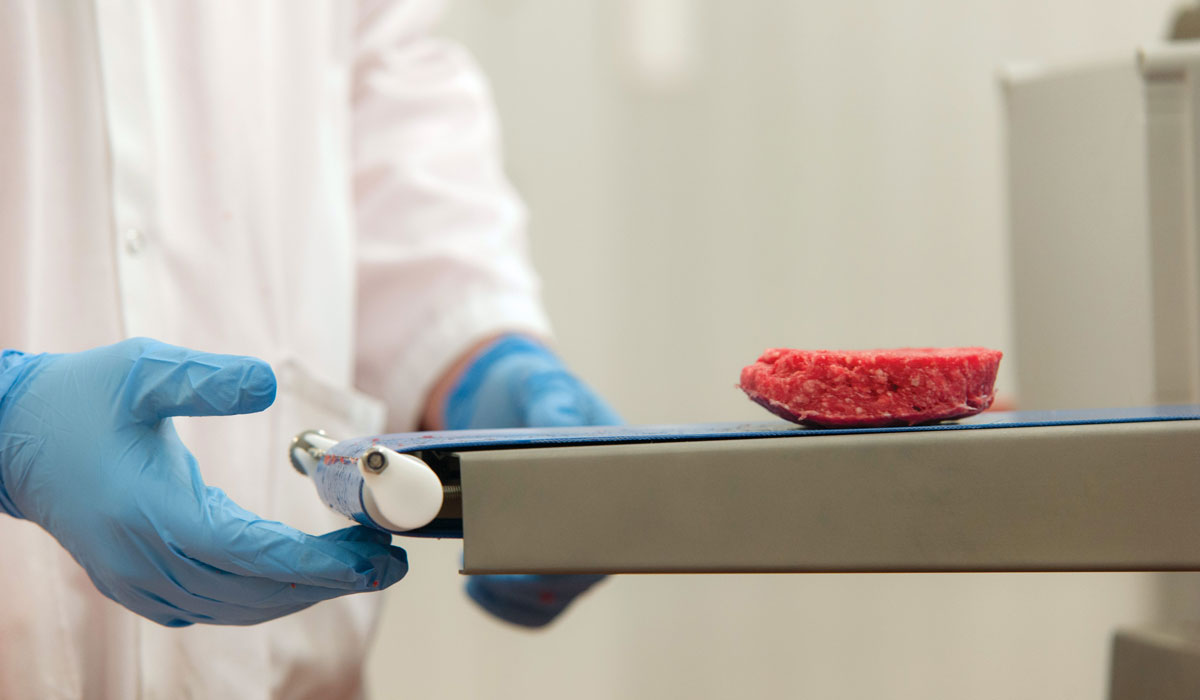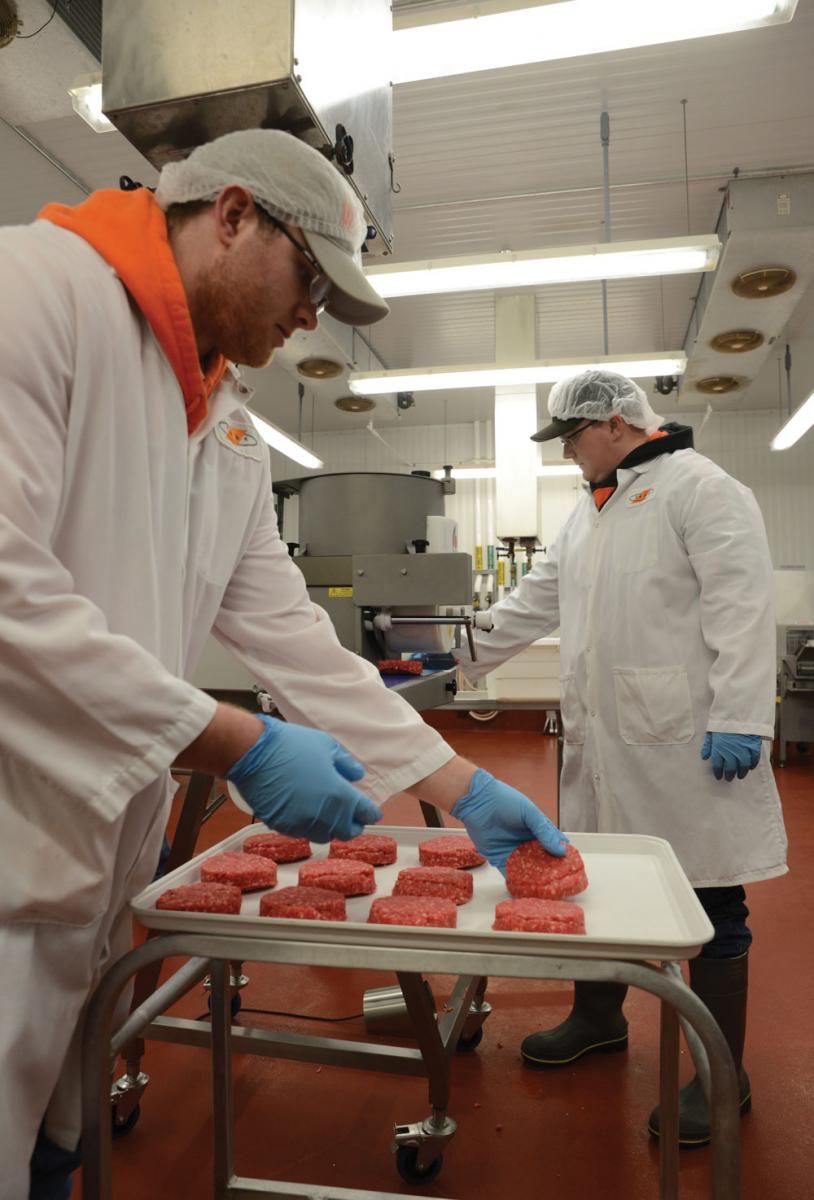Forming the future
Friday, November 6, 2015

Veggie patties. Chicken nuggets. Fish sticks. Cookies. Dog treats. These are just some of the food products that can be produced by a new equipment donation.
The R2200 Forming Machine, R-Series, valued at $23,000, is the newest addition to Oklahoma State University’s Robert M. Kerr Food & Agricultural Products Center’s line of food-processing equipment, donated by Unitherm Food Systems in Bristow, Oklahoma.
“The forming machine will allow us to meet our mission in providing technical assistance to Oklahoma’s value-added agricultural industry,” says Chuck Willoughby, FAPC business and marketing relations manager. “The equipment donation also allows us to work with a wide range of food manufacturers who are looking to test-market shaped products.”
David Howard, president and chief executive officer of Unitherm Food Systems, donated the forming machine to help food business entrepreneurs who seek FAPC resources to produce different forms of products.
“If someone comes to the center and wants to sell a Christmas tree-shaped product at Christmas and then sell an Easter egg-shaped product at Easter, FAPC will have the equipment available to be able to assist,” Howard says.
The forming machine can produce 1,200 to 4,000 perfect-shaped formations per hour, which makes a company competitive, in terms of labor requirements.
“Other options include using a hand-crank unit,” Howard says. “If you wanted to make 10,000 cookies, it would take one person several hours to manually crank out the product.”
Before receiving this new forming machine, FAPC used a hand-crank forming machine for a particular project.
Renee Albers-Nelson, FAPC milling and baking specialist, says the hand-crank forming machine worked well, but was a struggle when using strong cookie dough or making large batches.
“It was difficult to use large pieces of ingredients,” Nelson says. “We wanted to use apples to make dog treats, but we had to make sure they were cut small. The new donated forming machine allows us to have more opportunities.”
The forming machine works by loading product in the top of the machine. The machine then feeds the formulations into a rotating drum and is extruded out.
The efficiency of the forming machine depends on how many shapes are in the drum. A drum can have up to three different shapes in it. FAPC currently has two drums: a two-inch chicken nugget shape and a four-inch round shape.
The hand-crank unit has grooves where dough or batter can get stuck, and the new forming machine has paddles that press the formulations into the drum.
“We were losing a couple pounds of dough when forming cookies with the hand-crank unit,” Nelson says. “With the new forming machine, we have reduced waste in processing.”
The shaped products then ride the conveyor belt to whatever application is desired by the user, which can include ovens, fryers or frozen storage.

“The forming machine can be lined up with our spiral oven, also donated by Unitherm, to provide continuous forming and cooking of a test product,” Willoughby says. “This could include a new product to be test-marketed by a center client or a fortified product to be utilized in a nutrition study.”
Donations from Unitherm have been used to develop new products and conduct research projects at FAPC.
“The Unitherm-FAPC relationship is interdependent,” Howard says. “FAPC uses the equipment for different studies, and we use that information to generate business for Unitherm.”
The donation allows FAPC to continue its purpose of supporting value-added enterprises and stimulating businesses in the state.
Thomas Coon, vice president, dean and director for OSU’s Division of Agricultural Sciences and Natural Resources, says the equipment donation is typical for the man honored as a 2014 recipient of the DASNR Champion award.
“Mr. Howard is a longstanding cooperating partner with DASNR who provides important assistance in helping us meet our land-grant mission to use science-based knowledge to help Oklahomans improve the quality of life for them, their families and communities,” he says.
Coon adds Howard has never put any constraints on his donations, giving because he appreciates the value of what FAPC provides to regional food businesses. Howard also freely gives of his time and knowledge, serving for three terms on the FAPC Industry Advisory Committee, including stints as chair and vice-chair.
Donations help FAPC add value to Oklahoma
Unitherm Food Systems is a market leader in innovative equipment technologies for pasteurization, cooking and chilling of raw, partially cooked and fully cooked food products and agricultural food commodities.
Thanks to Unitherm’s generosity over the past seven years, FAPC has received approximately $260,700 in support of food safety research and activities.
These donations have included a state-of-the-art boot-wash system and a micro-spiral oven to assist in value-added processing. Additional support has been provided through equipment repairs, sponsorship of FAPC events and workshops, and the creation of Oklahoma Gourmet, a program to represent Oklahoma businesses at the Gourmet Market in Dallas.
